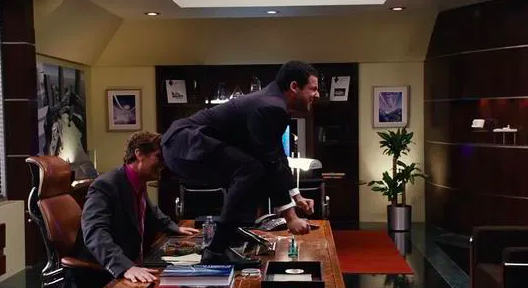Desde que tengo memoria, he sido un cinéfilo y amante de la televisión. Incluso, en ocasiones, recibí merecidas críticas por abstraerme del mundo al ver películas. Quizás, una forma de evitar u olvidar momentáneamente, en el mejor de los casos, los problemas cotidianos. Ahora, soy más comedido, sigo disfrutando de este arte, en especial, si tratan temas de ciencia ficción, pero sin escapar de la realidad. Al contrario, intentó descubrir los propósitos subyacentes más allá de los mensajes denotados y connotados.
A pesar de mi suspicacia, reconozco que el buen cine, así como la buena literatura, aportan diversidad de perspectivas y valores que enriquecen las experiencias de las personas. En tal sentido, agradezco y celebro la segunda edición de la iniciativa sobre cine que nos plantea #HolosLotus con respecto en el crecimiento personal, bienestar y desarrollo de la conciencia.
Así que, pensé en las películas inspiradoras vistas. Entonces una breve risilla apareció a flor de labios al recordar las actuaciones de Adam Sandler, Kate Beckinsale, y Christopher Walken en la comedia dramática con tintes de ciencia ficción y sobrenaturales titulada Click del año 2006. Creo haberla visto unas tres veces, y más allá de las situaciones cómicas que abarcan lo visual y absurdo, situacional y el humor negro, ancla la historia en cómo uno es el responsable de escribir su propia historia.
Con total seguridad, muchos de mi generación que pasen por estas líneas, también la habrán disfrutado, riendo y conmoviéndose en la medida que transcurre la tragicómica vida del protagonista, Michel Newman (interpretado por Adam Sandler) un arquitecto obsesionado por el triunfo profesional, y que descuida a la familia en el afán del perfeccionismo, la fama y la fortuna. Para colmo de males, durante la visita a una gran tienda por departamento, conoce a un extraño dependiente, Morty, (interpretado por Christopher Walken) quien le ofreció, sin costo ni opción de devolución, un control remoto extraordinario, capaz de manejar los eventos de su vida en tiempo real. Este control similar al de las antiguas videocaseteras, le permite revisar su pasado, así como también, suprimir situaciones desagradables e irrelevantes en su presente. Incluso, paralizar, por escasos segundos, la continuidad del tiempo y espacio, y alterarlo a conveniencia. La escena con David Hasselhoff (el jefe en la firma), aunque algo escatológica, también fue jocosa y recoje lo que pasa en la mente de muchos ante una injusticia de un superior. Al principio, el protagonista, fascinado, y feliz con semejante poder, actuó con irresponsabilidad, sin medir las consecuencias. Al suprimir las situaciones desagradables, produjo un futuro no deseada fuera de su control.

Sí, esta película presenta, en un poco más de cien minutos, cómo las malas decisiones, inadecuada gestión de la atención, valores difusos y la falta de objetivos claros pueden llevar a una persona, en el proceso, a destruir las relaciones familiares a pesar de un aparente éxito profesional. Otro propósito transversal en la película, está en mostrar cómo los malos hábitos alimenticios degeneraron en obesidad crónica del hijo, pero en particular, en el protagonista. Al final, Michel Newman, terminó con una severa enfermedad cardiovascular que lo llevó a la muerte. En una de las escenas finales, él yace moribundo, en la calle, bajo la lluvia, no sin antes aconsejar a su hijo que la familia es lo más importante. Newman fallece para despertar sobre unos cojines en la gran tienda por departamento. Soñaba… No obstante, Morty, en una de las escenas ante de final, le reitera una frase dicha al inicio de la película: a veces los buenos necesitan una segunda oportunidad. Michel hizo consciencia y creció como persona, dando prioridad a las relaciones relevantes en su vida: su esposa, hijos y padres. El señor Newman es un hombre nuevo. Un inteligente juego de palabras en el apellido del protagonista. Una ficción aleccionadora. En la vida real pocos reciben segundas oportunidades.
Si bien, la película no recibió un Óscar de la academia norteamericana, sí fue nominada en el renglón de maquillaje. Pero si ganó el premio a la mejor comedia en People's Choice Awards y al actor favorito (Adam Sandler) en Kids Choice Awards. En la taquilla no le fue mal, recaudando 240,8 millones de dólares con un presupuesto de 82,5 millones de dólares. (Datos consultados en la Wikipedia)
Espero mis comentarios alienten a quienes no la haya visto todavía.

Un breve ensayo original de
@janavedaLa imagen de portada fue creada por mí usando Mac Keynote con base en la imagen de
OpenClipart-Vectors en
Pixabay.
¡Cansado! ¿Ya no te satisfacen las redes sociales tradicionales?
Entonces, te invito a conocer Hive presionando
aquí.
Únete a nuestra comunidad global, en donde la libertad sin censura en nuestro norte.
I have been a film buff and television lover for as long as I can remember. I have occasionally received well-deserved criticism for abstracting myself from the world when watching movies. Perhaps, a way to avoid or momentarily forget, at best, the problems of everyday life. Now, I am more restrained, I still enjoy this art, especially if it deals with science fiction themes, but without escaping from reality. On the contrary, I tried to discover the underlying purposes beyond the denoted and connoted messages.
Despite my suspicion, I recognize that good cinema, like good literature, offers a diversity of perspectives and values that enrich people's experiences. In this sense, I am grateful for and celebrate the second edition of the initiative on cinema that #HolosLotus presents regarding personal growth, well-being, and the development of consciousness.
So, I thought about the inspiring films I had seen. Then, a brief chuckle came to my lips as I recalled the performances of Adam Sandler, Kate Beckinsale, and Christopher Walken in the 2006 sci-fi/supernatural-tinged comedy-drama Click. I think I've seen it about three times, and beyond the comedic situations that embrace the visual and absurd, situational, and dark humor, it anchors the story in how one is responsible for writing one's own story.
I am sure that many of my generations who read these lines will also have enjoyed it, laughing and being moved by the tragicomic life of the main character, Michel Newman (played by Adam Sandler), an architect obsessed with professional success, who neglects his family in the pursuit of perfectionism, fame, and fortune. To make matters worse, during a visit to a large department store, he meets a strange clerk, Morty, (played by Christopher Walken) who offers him, at no cost or return option, an extraordinary remote control, capable of managing the events of his life in real-time. This control, similar to the old VCRs, allows him to review his past, as well as to suppress unpleasant and irrelevant situations in his present. He can even paralyze, for a few seconds, the continuity of time and space, and alter it at will. The scene with David Hasselhoff (the boss at the firm), although somewhat scatological, was also humorous and reflects what happens in the minds of many when faced with injustice from a superior. At first, the protagonist, fascinated and happy with such power, acted irresponsibly, without measuring the consequences. By suppressing unpleasant situations, he produced an unwanted future beyond his control.

Yes, this film presents, in a little over a hundred minutes, how bad decisions, inadequate attention management, diffuse values, and lack of clear objectives can lead a person, in the process, to destroy family relationships despite apparent professional success. Another cross-cutting purpose of the film is to show how bad eating habits degenerated into chronic obesity in the son, but in particular, in the protagonist. In the end, Michel Newman ended up with a severe cardiovascular disease that led to his death. In one of the final scenes, he lies dying in the street in the rain, but not before advising his son that family is the most important thing. Newman dies to wake up on cushions in the big department store. He dreamed... However, Morty, in one of the scenes before the end, reiterates a phrase said at the beginning of the film: sometimes the good guys need a second chance. Michel became aware and grew as a person, giving priority to the relevant relationships in his life: his wife, children, and parents. Mr. Newman is a new man. A clever play on words in the protagonist's last name. A sobering fiction. In real life, few get second chances.
Although the film did not receive an Oscar from the U.S. Academy, it was nominated in the makeup category. However, it did win Best Comedy at the People's Choice Awards and Favorite Actor (Adam Sandler) at the Kids' Choice Awards. It also did well at the box office, grossing $240.8 million on a budget of $82.5 million (Wikipedia data).
I hope my comments encourage those who haven't seen it yet.
A brief essay by
@janaveda in Spanish and translated to English with
www.deepl.com (free version)
The cover image was created by me using Mac Keynote and based on an image by
OpenClipart-Vectors on
Pixabay.
Tired...! Are you no longer satisfied with traditional social networks?
Then I invite you to get to know Hive by clicking
here.
Join our global community, where uncensored freedom is our north.









